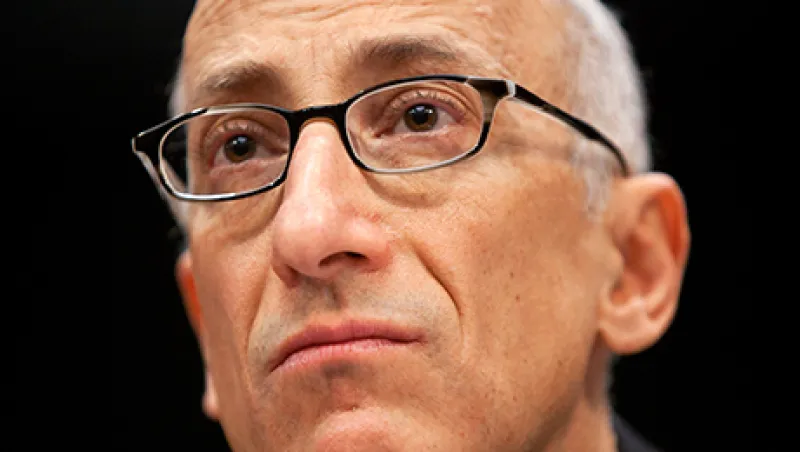For the Commodity Futures Trading Commission, change is the only option. When Gary Gensler stepped down as chairman in December after five years at the helm, the U.S. regulator was entering a new phase — but with three of its five commission seats unoccupied. Since the 2010 Dodd-Frank Wall Street Reform and Consumer Protection Act demanded more regulation of derivatives, investors have been closely watching the CFTC, which oversees a swaps market with a notional value of $400 trillion.
President Barack Obama has nominated Department of the Treasury assistant secretary Timothy Massad to replace Gensler, one of the most aggressive U.S. financial sector regulators in recent history. If confirmed, Massad will step into an enforcement role. Former Goldman Sachs Group banker Gensler served a term dominated by the need to draft rules to support Dodd-Frank, in particular those governing the shift of derivatives — trades based on the value of an underlying asset — to regulated platforms. With that task now complete, the CFTC will emphasize putting its new regulations to work. “The commissioner’s job is changing with time,” says Micah Green, a partner with Washington law firm Patton Boggs and co-chairman of its financial services and tax practice.
The 57-year-old Massad — who without his glasses bears a resemblance to Gensler — worked as a securities lawyer in New York for Cravath, Swaine & Moore before joining the Treasury in 2009 as an assistant secretary for financial stability. He played a central part in implementing the $700 billion Troubled Asset Relief Program, widely lauded for its profitable investments, and the Home Affordable Modification Program, often criticized for failing to help more homeowners. Few expect Massad to mimic fellow Democrat Gensler’s combative style. “It would not be surprising if, as a lawyer, his general approach was less antagonistic than that of Gensler,” says Michael Beaton, a managing director at London-based consulting firm Derivatives Risk Solutions.
Nominations for the other open CFTC spots went to Democrat Sharon Bowen, a New York securities lawyer with the firm Latham & Watkins, and Republican J. Christopher Giancarlo of New York–based interdealer broker GFI Group. Giancarlo, who heads strategic development and communications at GFI, is a former chairman of the Wholesale Markets Brokers’ Association Americas, which has lobbied for increased flexibility in swaps trading over regulated platforms. CFTC commissioners are appointed for five-year terms approved by the Senate.
As of mid-January the Senate Committee on Agriculture, Nutrition and Forestry, which holds CFTC hearings because prior to Dodd-Frank the commission was concerned chiefly with agricultural commodities, hadn’t set a timetable to consider these nominations. Commissioner and Democrat Mark Wetjen is acting as chairman, and Republican Scott O’Malia is the only other current commissioner whose term hasn’t expired. Democrat Bart Chilton has said that he’ll keep his post for now, without giving a departure date. CFTC rules allow commissioners to overstay their terms until the current session of Congress ends.
Dodd-Frank’s main impact on the CFTC is derivatives regulation, a function shared by the U.S. Securities and Exchange Commission. The CFTC oversees derivatives based on unsecuritized assets; the SEC, securitized ones. Dodd-Frank has required the CFTC to create 68 new actions that include rules, guidance and interpretations. “The CFTC will have to explain what they really mean and how this will really work, and that means tweaking some rules and perhaps binning some others,” risk consultant Beaton says. “That kind of role could be quite well suited to Massad and his background as a lawyer.”
One of Massad’s most crucial missions would be moving derivatives trading from current, over-the-counter arrangements to regulated exchanges, a process that was expected to begin in January. Concerns are overblown that lobbyists could succeed in having some types of derivatives exempted from regulated trading and rules watered down to irrelevancy once Gensler’s gone. That’s according to James Cawley, CEO of New York–based Javelin Capital Markets, one of several firms that have built trading platforms awaiting CFTC approval. “Billions of dollars have already been invested in the new trading infrastructure,” Cawley says. “It’s financially impractical at this point to turn back.” • •






